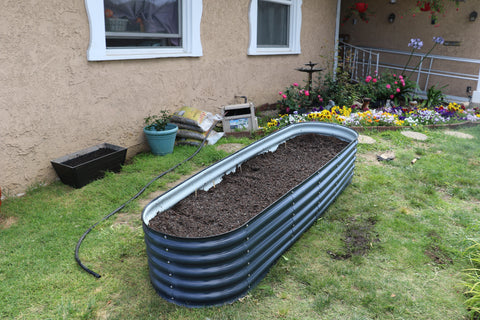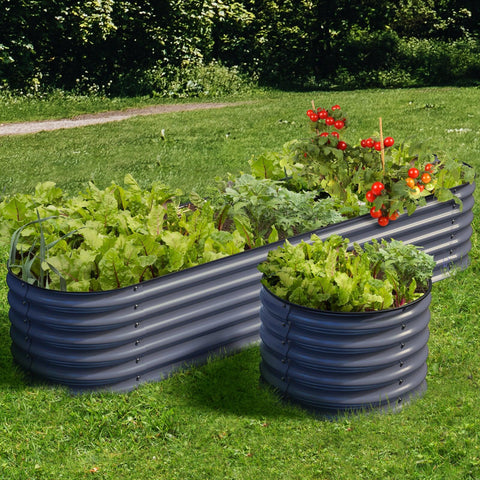Knowledge from Olle Garden Bed: Reasons to Avoid Planting In Wet Soil
Is it OK to plant in the rain? Of course, we are talking about wet and humid soil. Melting snow and heavy rain will create these conditions in spring, which makes it difficult to plant vegetable gardens on time. Should gardeners wait or march forward, planting anyway? The following content also has some reference value for raised garden beds.

Should planting be avoided when the soil is wet?
Wet soil conditions in spring are a common problem for many gardeners. Some years are worse than others. Sometimes, due to the wet weather, planting is delayed every day, and the gardening season is slipping away. So, is it really that bad to grow vegetables in wet soil?
Unfortunately, the answer is yes. Planting in wet soil will destroy the healthy soil structure you have worked hard to build. The result is compacted soil, which may take years to repair. In addition, compaction can occur in many ways.
If you want to know whether it is safe to plant in the rain, please note that simply walking on saturated ground will cause soil compaction near the surface. Driving a tractor or heavy equipment on wet ground will compact the soil to a deeper depth. Rotary tillage or plowing wet soil will produce large pieces of soil that are difficult to break.
Planting in wet soil conditions will also produce blocky soil, which is counterproductive to using fine tillage to make seedbeds. Large lumps make it difficult to cover all seeds to the correct depth and form an uneven surface, unable to maintain a consistent water content across the bed. This may cause spots to germinate.
Even if the garden was first cultivated when the soil was dry, heavy rain can cause wet conditions. Planting in the rain or when the soil conditions are wet will also lead to compaction when the holes around the transplanted seedlings are backfilled.

Influence of planting in wet soil
Once compacted, the soil has fewer pores. This reduces the ability of the soil to drain water and reduces the amount of oxygen available to the plant roots. In addition, the compacted soil is heavier and the roots of plants are more difficult to penetrate. This limits the amount of nutrients that plants can reach.
Planting vegetables in moist soil will also change the types of microorganisms found in the growth substrate. When compaction reduces the oxygen content in the soil, anaerobic bacteria will proliferate. These microorganisms produce hydrogen sulfide, butyric acid, alcohol and other substances harmful to vegetable plants.
To determine if the soil is too wet to plant, use a trowel to loosen a large handful of garden dirt. If the soil breaks from your fingers when squeezed, you'd better plant a garden. If the soil forms a ball, please delay for a few days to avoid compaction caused by farming or planting in wet soil conditions.
